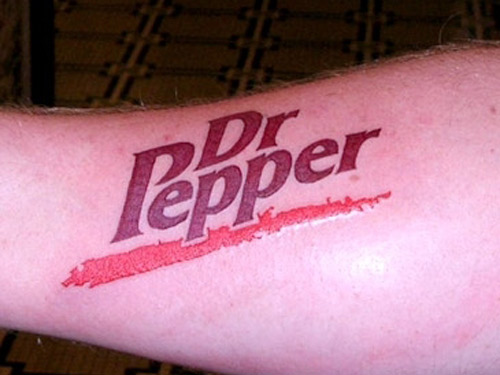The Role of Social Responsibility in Branding
/ These days I’ve been doing a lot of thinking about consumers and the brands they love.
I’m taking a Branding class this semester, and each week we do a case study of a different company and the branding challenges it faces.
These days I’ve been doing a lot of thinking about consumers and the brands they love.
I’m taking a Branding class this semester, and each week we do a case study of a different company and the branding challenges it faces.
Perhaps the biggest insight I’ve gleaned from the first couple of months is this:
Consumers own brands, not marketers.
That’s right – as much as companies may want to believe they have control over their brand and its meanings, in the end consumers are the ones who instill a brand with its true essence.
That’s because, at its core, the value of a brand comes from fulfilling some inherent consumer need, want or desire. While companies can (and obviously should) manage their brand, in the end consumers are the meaning makers of what the brand stands for.
As part of this course, I’m working on a consulting project for a regional consumer goods company that wants to go national. For confidentiality’s sake, let’s pretend this company makes cleaning products (it doesn’t).
Over the last few weeks my team and I have spent a lot of time doing a deep dive into the company and what its brand means for consumers. How do consumers use these cleaning products? What do the products allow consumers to accomplish? What emotional or social benefits come from using them?
What we’ve found so far is that the people who love this brand really love this brand.
In fact, they’re pretty fanatical. The products they use, and more importantly the brand overall, serves to truly define part of their identity.
In essence, it’s not just a product they use. It’s a lifestyle.
For the most part it’s been fascinating and even fun to see how these loyal consumers use, evangelize, and embody this brand.
Yet, during my research I stumbled upon some concerning evidence to suggest that some consumers had taken this fanaticism too far – namely, multiple YouTube videos of consumers using the product inappropriately. To follow the example of our phony product, let’s say consumers were uploading videos of themselves sniffing the fumes from the cleaning products and getting violently ill.
Of course, with my interest in corporate social responsibility, warning bells immediately went off in my head:
- Assuming the company knows about these videos, how should it respond?
- What is the company doing to prevent this dangerous activity?
- What legal implications exist if someone is seriously hurt engaging in this behavior?
And the list goes on.
But beyond the obvious CSR questions, I also thought of my key branding takeaway thus far:
If consumers make the meaning for a brand, what happens if they turn the meaning into something the company doesn’t want (in this case, a vehicle for irresponsible and unhealthy behavior)?
What is a company’s obligation, if any, for social responsibility in branding?
Some brands – alcohol-producers, cigarette companies, gun manufacturers – know that responsibility comes with the territory (although it’s certainly debatable whether they themselves always promote responsibility among consumers).
But what about brands that take on meanings that companies didn’t intend? If consumers own the brand, what opportunities do brand managers have to reclaim negative meanings and even to combat abuse of the product?
People often talk about corporate social responsibility as a brand builder – do it right and your brand will be strengthened and given more value.
But in this case, can CSR actually be a brand definer? Can social responsibility help brand managers looking to refine the (presumably unwanted) meanings that consumers have instilled in their brand?
This is the question I’ll be trying to answer over the next few months, and I’ll be sure to let you know what I find out. Since I’m still a student of branding, though, and certainly no expert, I’d love to hear your thoughts:
What role do you think CSR can play in helping to manage brands? What companies or case studies do you know of that exemplify this issue of unintended, negative and/or dangerous brand meanings?
One example we’ve looked at in class is Harley Davidson and the Hell’s Angels – talk about a brand meaning (aka: organized crime) that a company might want to refine!
Thanks for weighing in…



